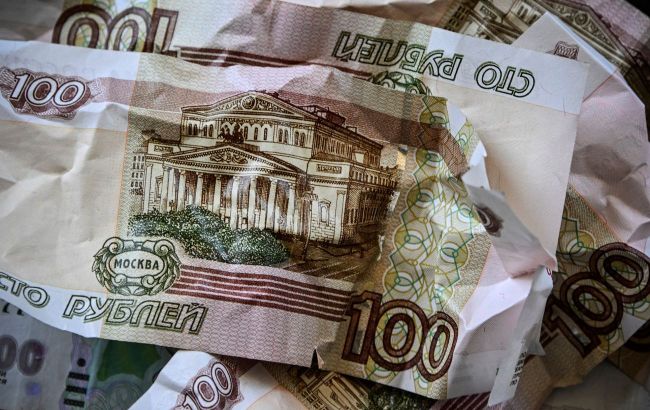Russia's shrinking oil revenues leave Kremlin scrambling for funds and new taxes, Ukraine says
 Photo: Kremlin hunts for new reserves amid economic crisis (Getty Images)
Photo: Kremlin hunts for new reserves amid economic crisis (Getty Images)
Russia's oil and gas revenues are declining dramatically. The Kremlin is forced to cover the budget deficit using the National Wealth Fund and new taxes on citizens, reports the Foreign Intelligence Service of Ukraine.
The share of oil and gas revenues in Russia's federal budget is dropping sharply. From nearly 50 percent previously, it is projected to fall to 20–22 percent by 2026. Russian Finance Minister Anton Siluanov acknowledges the loss of a key revenue source, creating a serious budget challenge.
To cover the deficit, the Kremlin is considering three options:
- Use the National Wealth Fund, which itself needs support after previous loans.
- Increase public debt, adding extra costs for interest payments and loan repayment.
- Raise taxes and fees, directly hitting ordinary citizens.
All three options pose significant difficulties for both the economy and the population.
Economists at the Institute of National Economic Forecasting of the Russian Academy of Sciences note that "exhausted the factors of economic growth that were previously in place."
Household consumption fell to 2.7 percent in the first half of 2025. This is the worst performance since the start of Russia's full-scale war against Ukraine. In 2023, consumption was 7.4 percent, and in 2024 it was 5.4 percent.
The Russian economy cracks under pressure
Since the start of the war, Russian oil prices have dropped from $100 to $55 per barrel. This has sharply reduced the country's oil revenues.
The decline has led to a drastic reduction in budget inflows and threatens the National Wealth Fund, which experts estimate could be depleted by the end of 2025.
For context, Russia's budget deficit reached 4.9 trillion rubles in July — the highest in more than 30 years.
Earlier, Reuters, citing sources, reported that President Vladimir Putin is increasingly concerned about the state of Russia's economy amid the war.

